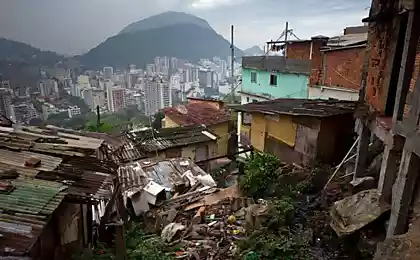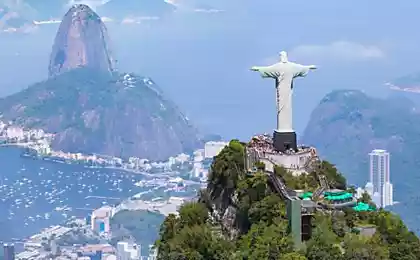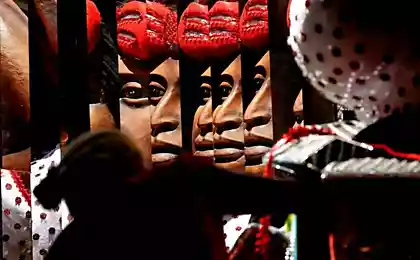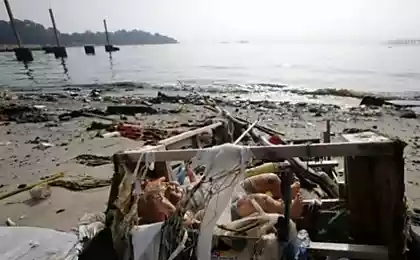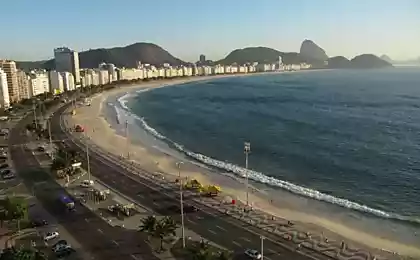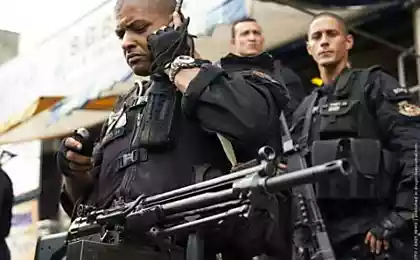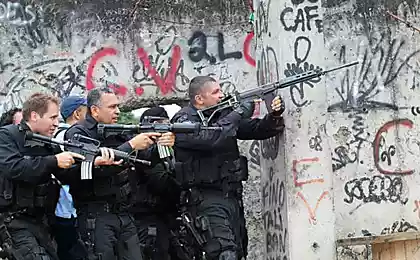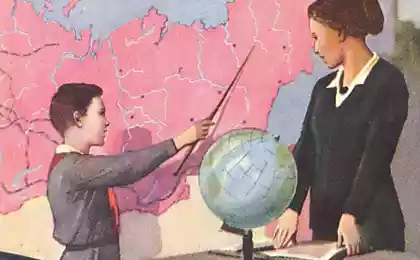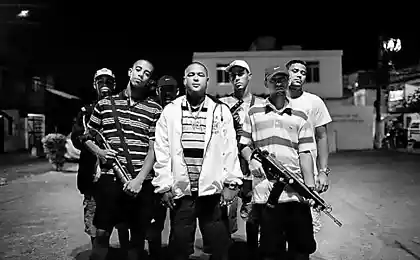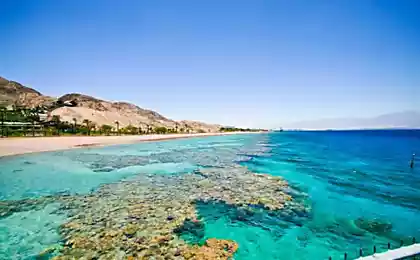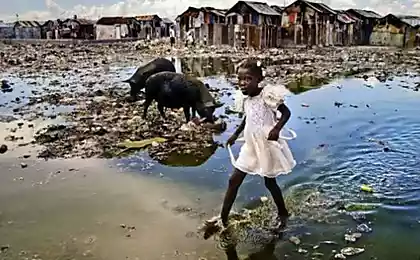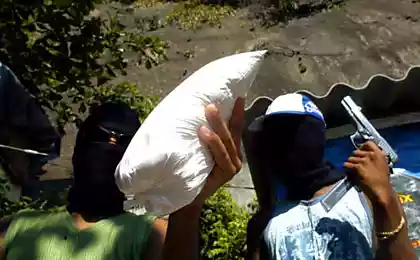779
Appeasing the favelas of Rio de Janeiro (22 photos)
In preparation for the 2014 FIFA World Cup and the Olympic Games 2016 to be held in Rio de Janeiro, Brazil has sent all its forces to combat violence and drug trafficking in the city's favelas. To do this, we set up special peacekeeping riot police. Many believe that peacekeeping missions are able to improve life in the favelas of Rio de Janeiro, resulting in problems with electricity, garbage disposal and education will be solved. But some believe that this is only a temporary band-aid, and after the Olympic Games in 2016, the situation can only get worse.
Photojournalist Rafael Fabres visited there last year, and that's what he thinks about what is happening. My goal is to capture the entire process of peace before the end of 2016, in order to understand how much of Rio de Janeiro and its favelas may change, and whether at all. I lived in Vidigal favela. After one month of trying to establish contact with the locals and the military police, I realized that I would need much more time. The meaning of peacekeeping police lies in the fact that after the favela would be "pacified" and its territory will be created police department, its staff should try to find a common language with the local residents, acting as agents of social development. Such a scenario is, unfortunately, does not work one hundred percent.
From my point of view, the peacekeeping police officers are great guys, at least those who do not behave aggressively and violently. Basically, it is the young cop who is very interesting to see how the foreign journalists will cover the event in the same locations where they conduct patrols.
For four months I have lived in two favelas, Vidigal and Rosina. For a long time I explain to local people what the project aims, and gradually I gained their confidence. I worked in the "peaceful" and not in the peaceful favela. About 90 percent of my time is spent on research and efforts to improve relations, because without this project simply can not be complete.
The question that worries everyone in Rio: Will the "appeasement" effective in the long term? By most accounts, the peacekeeping mission has had a positive impact on the quality of life in the favelas, and the level of violence has decreased significantly since 2008, when efforts to improve the life has just begun. But there are disturbing effects, such as public speculation, forced evictions, abuses of power by the police and the movement of criminals in other parts of the city.
Before the peacekeeping mission are a kind of drug traffickers in the favelas law. Any unlawful, in their opinion, robberies, assaults and street fights abolished quickly and brutally. Now, after the "pacification" of the favelas residents have complained that the increased levels of violence, as criminals do not fear punishment from the traffickers. Despite all this, I believe that a long-term peacekeeping will have a positive impact, as children, born and brought up in an environment free of weapons and drugs, will perceive life differently and determine the future of the new Rio de Janeiro.
1. A member of the police peacekeeping Brazil Alexandre Correa keeps his service weapon in the window of a police car on patrol the favela of San Carlos.
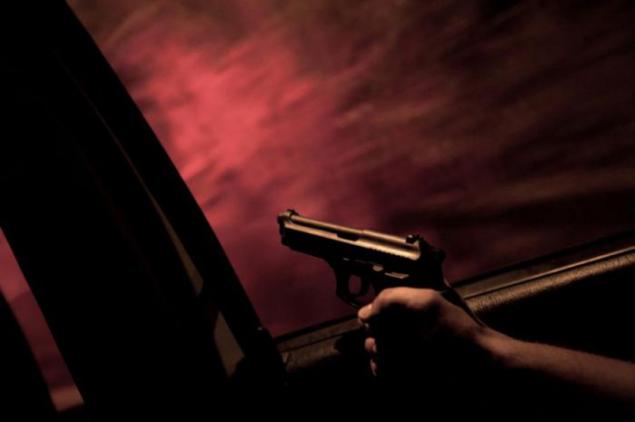
2. Soldiers peacekeeping force patrol the streets of San Carlos. While many believe that the peacekeeping has only a positive effect on life in the favelas, opening access to many services such as garbage collection, electricity, education, social assistance programs, some believe that peace is only temporary cover major problems.
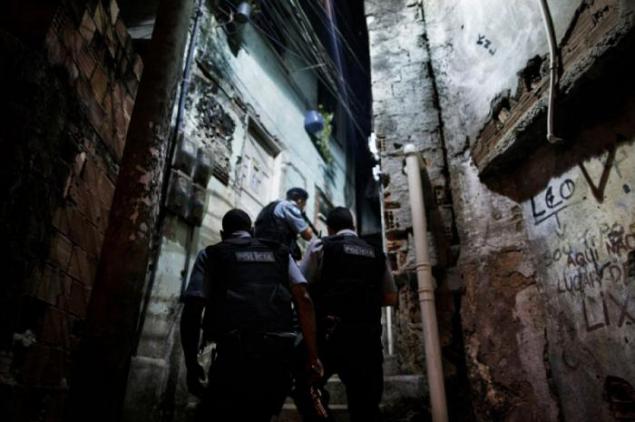
3. Police officer Octavio Sardine interrogate suspects in rape fvaele Vidigal.
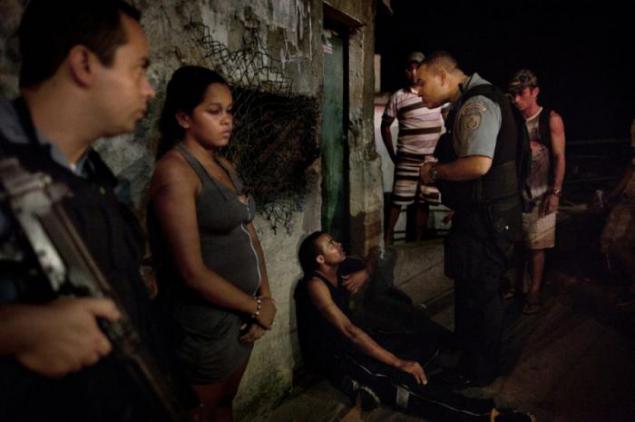
4. Police officers handcuff a suspect in the rape.
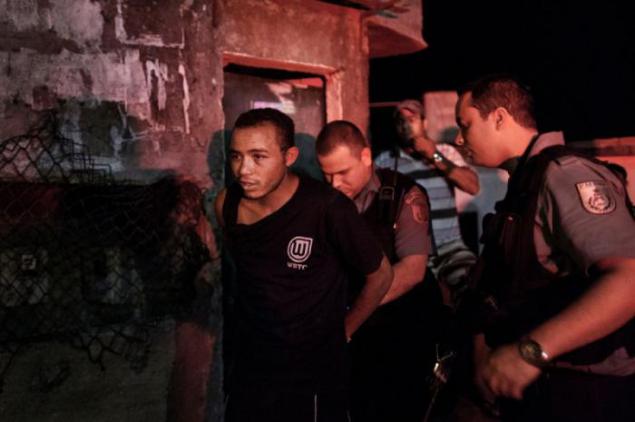
5. The suspect in the rape of sitting in a car police.
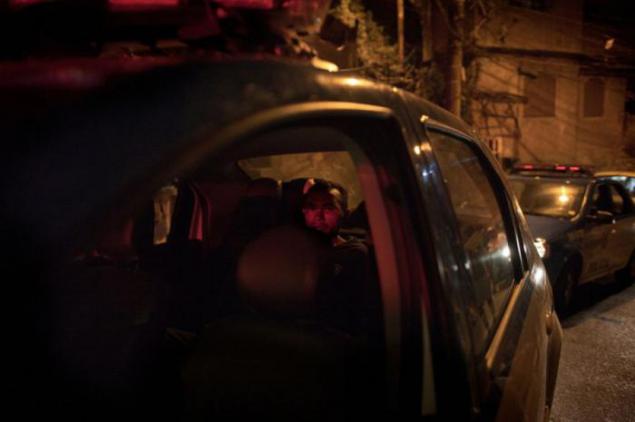
6. Employee peacekeeping police holding his gun at the ready, on hearing the sound of gunfire in the favela of San Carlos.
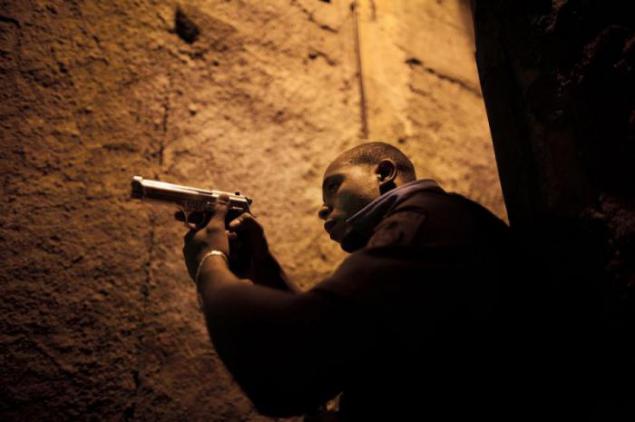
7. Police searches of two teenagers suspected of drug possession, in San Carlos.
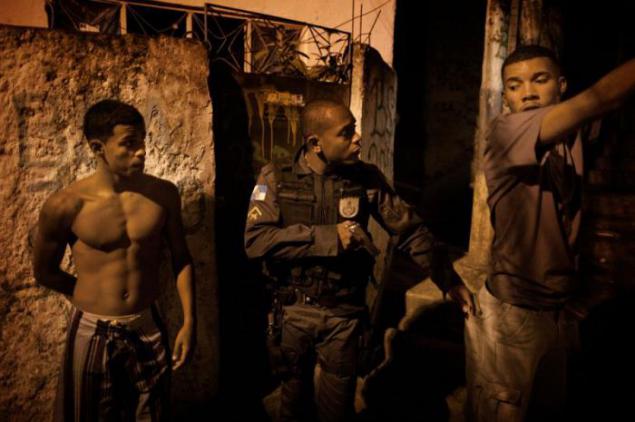
8. The police searched a group of young people on drug possession during a street party in San Carlos.
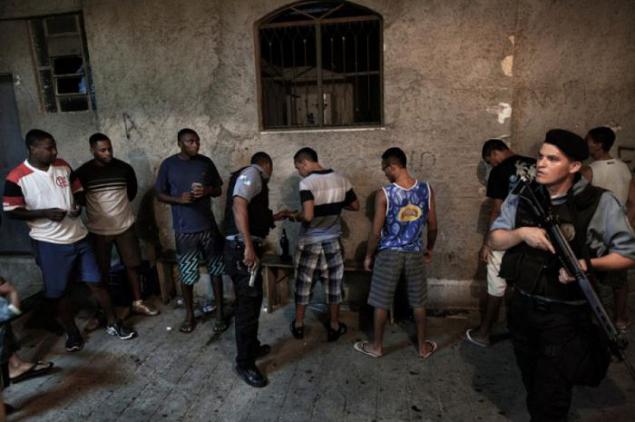
9. Employees peacekeeping police Ricardo da Silva and Octavio Sardine sent to a group of young people in Vidigal.
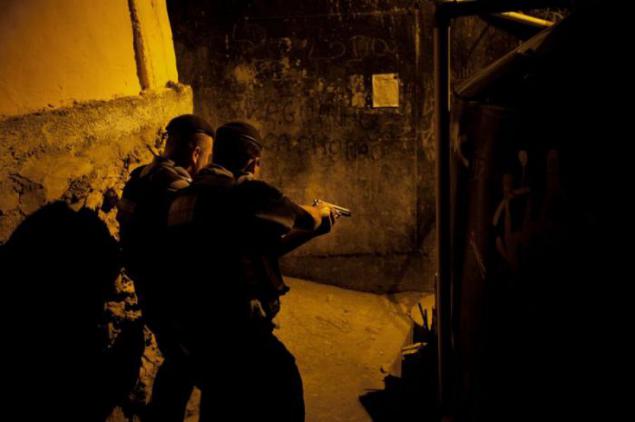
10. A police officer Eduardo scours the man suspected of drug possession, in San Carlos.
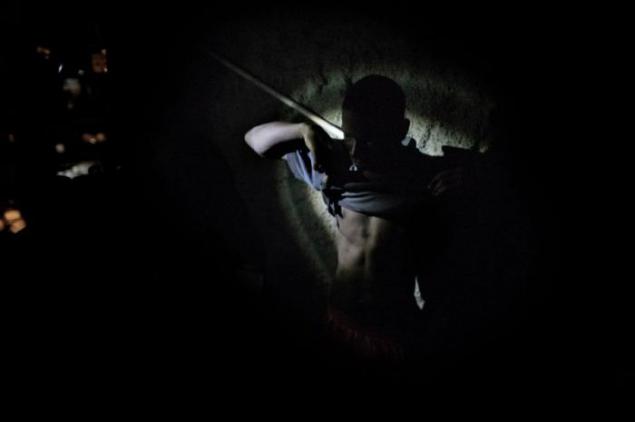
11. A police officer shows found during a search of a bag of crack in San Carlos.
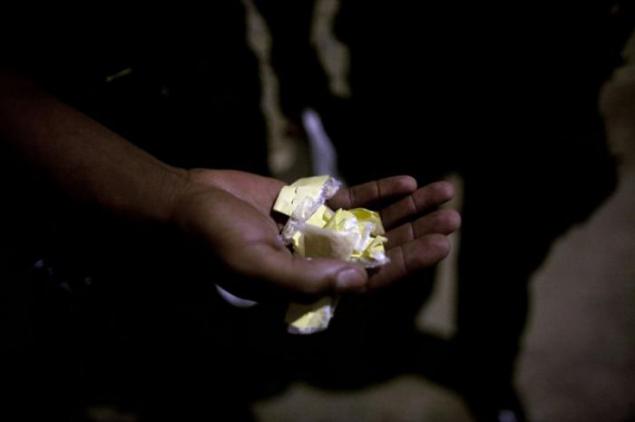
12. A member of the police involved in peacekeeping patrol in San Carlos.
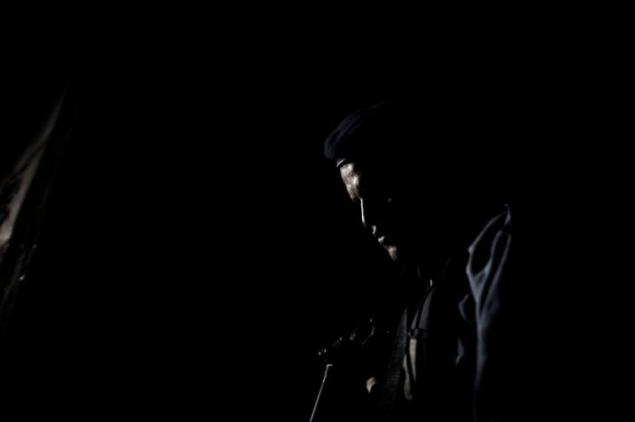
13. Police Batinga Clayton (left) and Dos Santos go to the police car on patrol Vidigal favela.
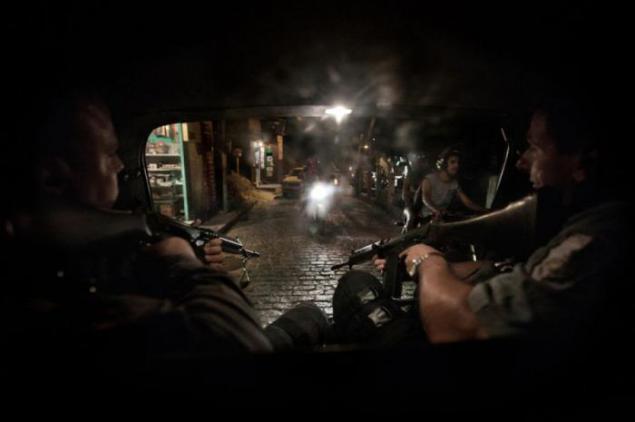
14. A police officer runs along the street during an operation against drug traffickers in San Carlos.
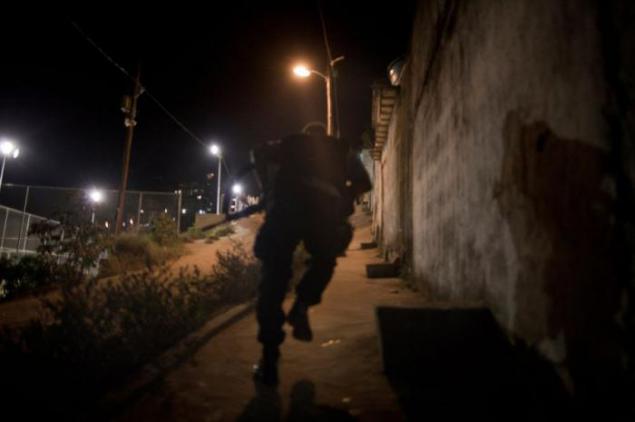
15. The police are waiting for the order after one of them was killed by a gang member during a patrol in San Carlos.
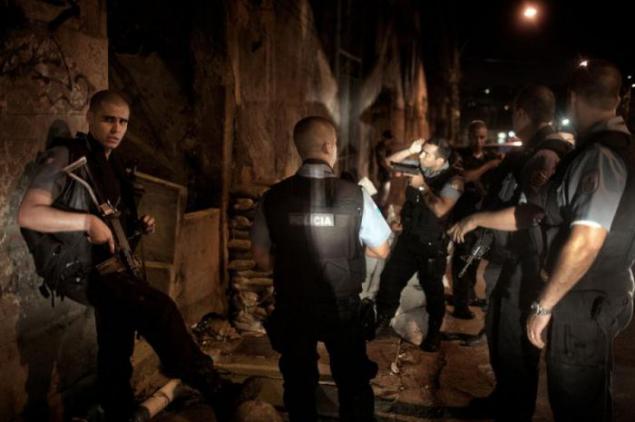
16. Traces of blood on the car, which carried the body of the murdered police officer in San Carlos.
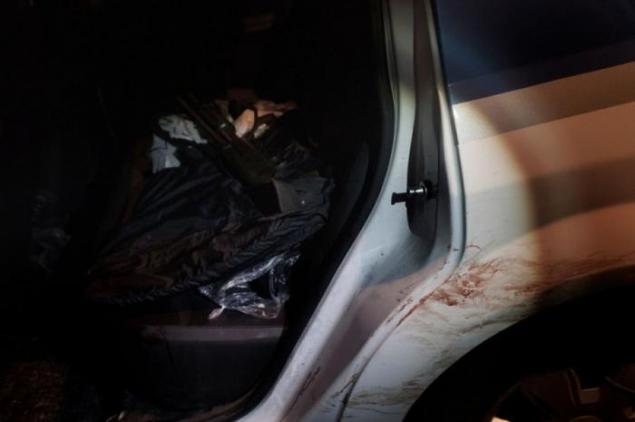
17. Employees of peacekeeping police Juliana Gomez, De Luca and Maya look at Leblon and Ipanema beaches from the top of the favela Vidigal.
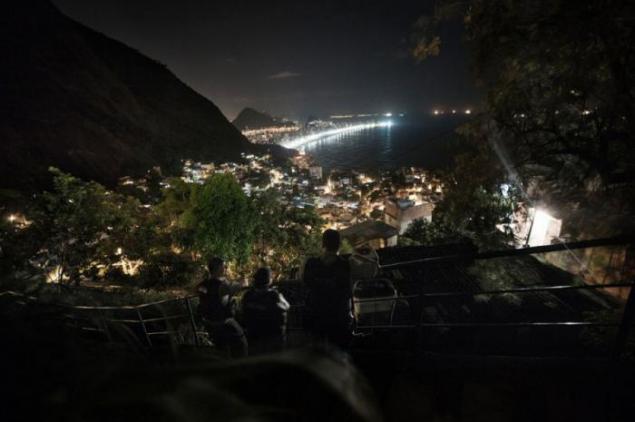
18. An employee of the Police Renata takes a break after a 12-hour patrols in Vidige.
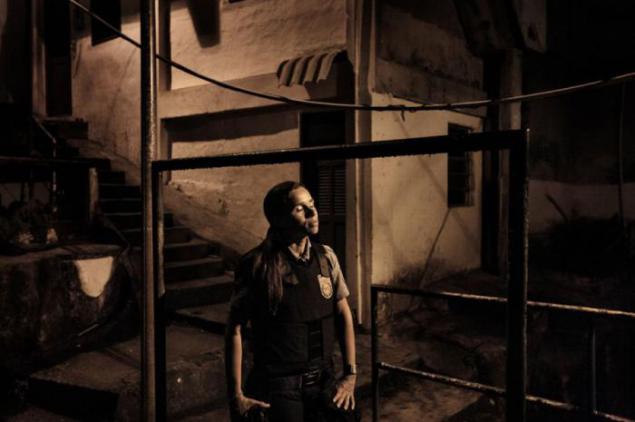
19. A police officer Fabiano Barros smokes a cigarette during a break in San Carlos.
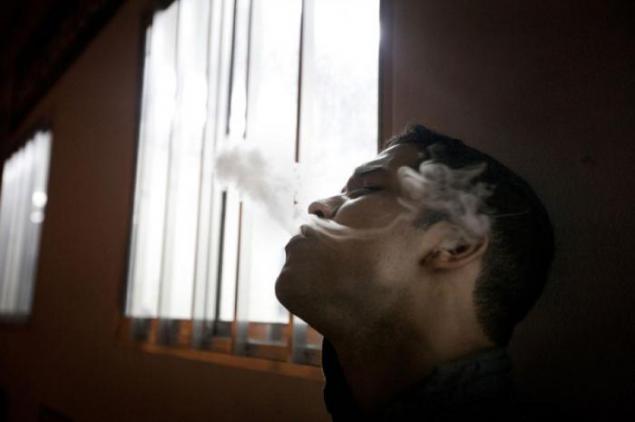
20. A resident of Vidigal Andre Lima looks at the patrol car from the window of the hostel in Rio de Janeiro.
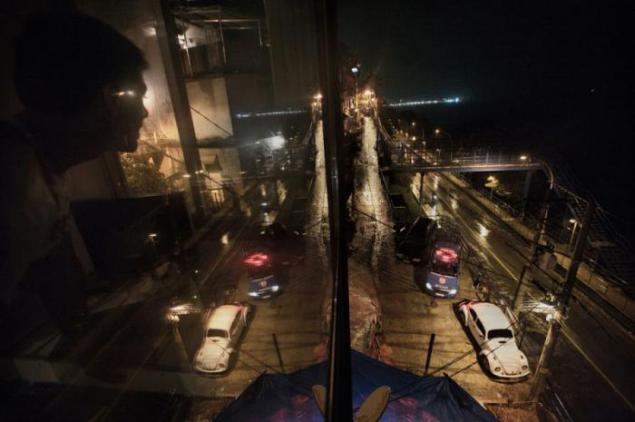
21. A resident of Vidigal smokes marijuana.
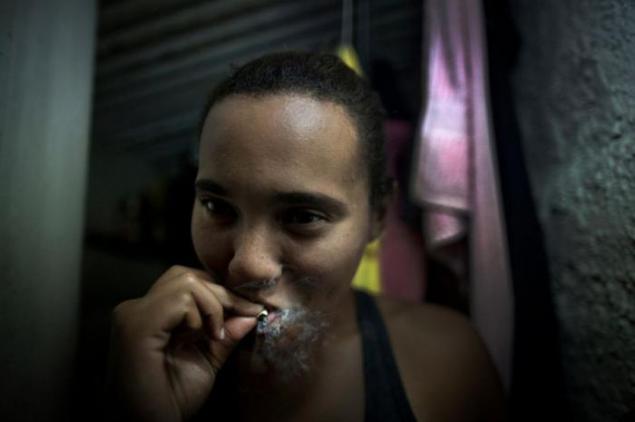
22. Employees of peacekeeping police Queiroz, Nerys, and Ferreira Guedes looking at San Carlos, Rio de Janeiro.
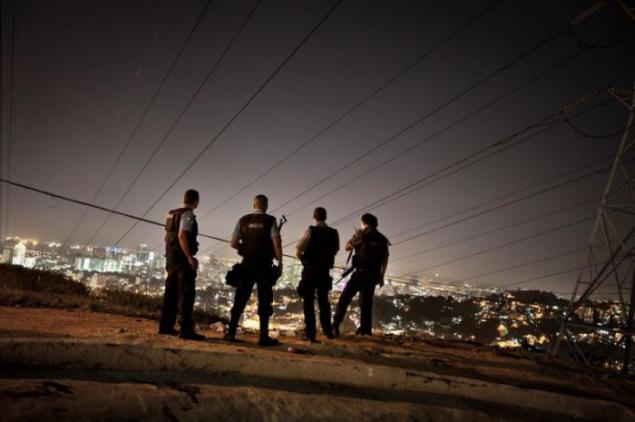
A source
Photojournalist Rafael Fabres visited there last year, and that's what he thinks about what is happening. My goal is to capture the entire process of peace before the end of 2016, in order to understand how much of Rio de Janeiro and its favelas may change, and whether at all. I lived in Vidigal favela. After one month of trying to establish contact with the locals and the military police, I realized that I would need much more time. The meaning of peacekeeping police lies in the fact that after the favela would be "pacified" and its territory will be created police department, its staff should try to find a common language with the local residents, acting as agents of social development. Such a scenario is, unfortunately, does not work one hundred percent.
From my point of view, the peacekeeping police officers are great guys, at least those who do not behave aggressively and violently. Basically, it is the young cop who is very interesting to see how the foreign journalists will cover the event in the same locations where they conduct patrols.
For four months I have lived in two favelas, Vidigal and Rosina. For a long time I explain to local people what the project aims, and gradually I gained their confidence. I worked in the "peaceful" and not in the peaceful favela. About 90 percent of my time is spent on research and efforts to improve relations, because without this project simply can not be complete.
The question that worries everyone in Rio: Will the "appeasement" effective in the long term? By most accounts, the peacekeeping mission has had a positive impact on the quality of life in the favelas, and the level of violence has decreased significantly since 2008, when efforts to improve the life has just begun. But there are disturbing effects, such as public speculation, forced evictions, abuses of power by the police and the movement of criminals in other parts of the city.
Before the peacekeeping mission are a kind of drug traffickers in the favelas law. Any unlawful, in their opinion, robberies, assaults and street fights abolished quickly and brutally. Now, after the "pacification" of the favelas residents have complained that the increased levels of violence, as criminals do not fear punishment from the traffickers. Despite all this, I believe that a long-term peacekeeping will have a positive impact, as children, born and brought up in an environment free of weapons and drugs, will perceive life differently and determine the future of the new Rio de Janeiro.
1. A member of the police peacekeeping Brazil Alexandre Correa keeps his service weapon in the window of a police car on patrol the favela of San Carlos.

2. Soldiers peacekeeping force patrol the streets of San Carlos. While many believe that the peacekeeping has only a positive effect on life in the favelas, opening access to many services such as garbage collection, electricity, education, social assistance programs, some believe that peace is only temporary cover major problems.

3. Police officer Octavio Sardine interrogate suspects in rape fvaele Vidigal.

4. Police officers handcuff a suspect in the rape.

5. The suspect in the rape of sitting in a car police.

6. Employee peacekeeping police holding his gun at the ready, on hearing the sound of gunfire in the favela of San Carlos.

7. Police searches of two teenagers suspected of drug possession, in San Carlos.

8. The police searched a group of young people on drug possession during a street party in San Carlos.

9. Employees peacekeeping police Ricardo da Silva and Octavio Sardine sent to a group of young people in Vidigal.

10. A police officer Eduardo scours the man suspected of drug possession, in San Carlos.

11. A police officer shows found during a search of a bag of crack in San Carlos.

12. A member of the police involved in peacekeeping patrol in San Carlos.

13. Police Batinga Clayton (left) and Dos Santos go to the police car on patrol Vidigal favela.

14. A police officer runs along the street during an operation against drug traffickers in San Carlos.

15. The police are waiting for the order after one of them was killed by a gang member during a patrol in San Carlos.

16. Traces of blood on the car, which carried the body of the murdered police officer in San Carlos.

17. Employees of peacekeeping police Juliana Gomez, De Luca and Maya look at Leblon and Ipanema beaches from the top of the favela Vidigal.

18. An employee of the Police Renata takes a break after a 12-hour patrols in Vidige.

19. A police officer Fabiano Barros smokes a cigarette during a break in San Carlos.

20. A resident of Vidigal Andre Lima looks at the patrol car from the window of the hostel in Rio de Janeiro.

21. A resident of Vidigal smokes marijuana.

22. Employees of peacekeeping police Queiroz, Nerys, and Ferreira Guedes looking at San Carlos, Rio de Janeiro.

A source
